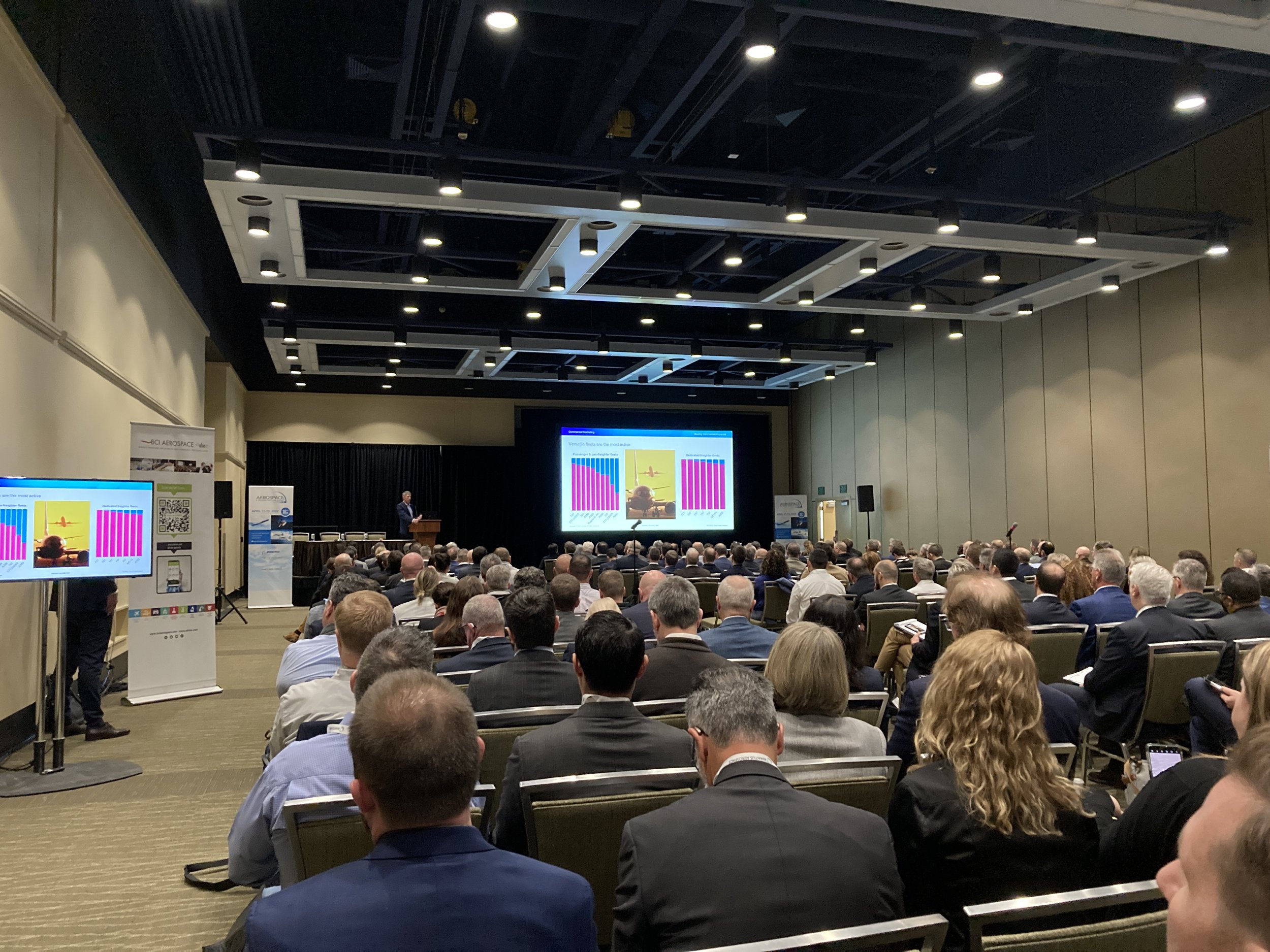Day one of the Aerospace & Defense Supplier Summit, held at the Seattle Convention Center, saw the Boeing Company take the stage to enthusiastically welcome back suppliers in-person. Vice Presidents across Boeing’s lines of business shared their insight into changes in the aerospace sector coming out of COVID-19, where they think the market is headed and the challenges they see in the sector and in the supply chain.
Darren Hulst, Vice President of Commercial Marketing, kicked off the proceedings with an engaging presentation that covered the state of the industry. His key points:
- On the passenger side, while most planes are back in service, they are flying fewer hours. Cargo is at record levels of both traffic and revenue.
- Airlines need flexible fleets to respond to changing needs. Versatility positively affects performance and cost structure.
- Oil price is an expense driver, but in the past high oil prices haven’t led to slowdowns in passenger traffic.
- There are 200 more freighters in the air compared to 2019. The uptick is a mix of deliveries, conversions and reactivations.
Vice President of Supply Chain Janene Collins highlighted talent shortages and the fight for labor as a challenge both at Boeing and across the supply chain. She pointed to the importance of the supply chain as an early-alert system, having heard from a supplier back in January about concerns over titanium coming from Russia. On the defense side, V.P. Penny White echoes Collins’ concerns: raw materials and chemical shortages are what is keeping her up at night.
Throughout the day Boeing leadership spoke to core themes of transparency and accountability, partnership and safety.
The Aerospace and Defense Supplier Summit continues Tuesday and Wednesday. Additional details can be found at https://seattle.bciaerospace.com
